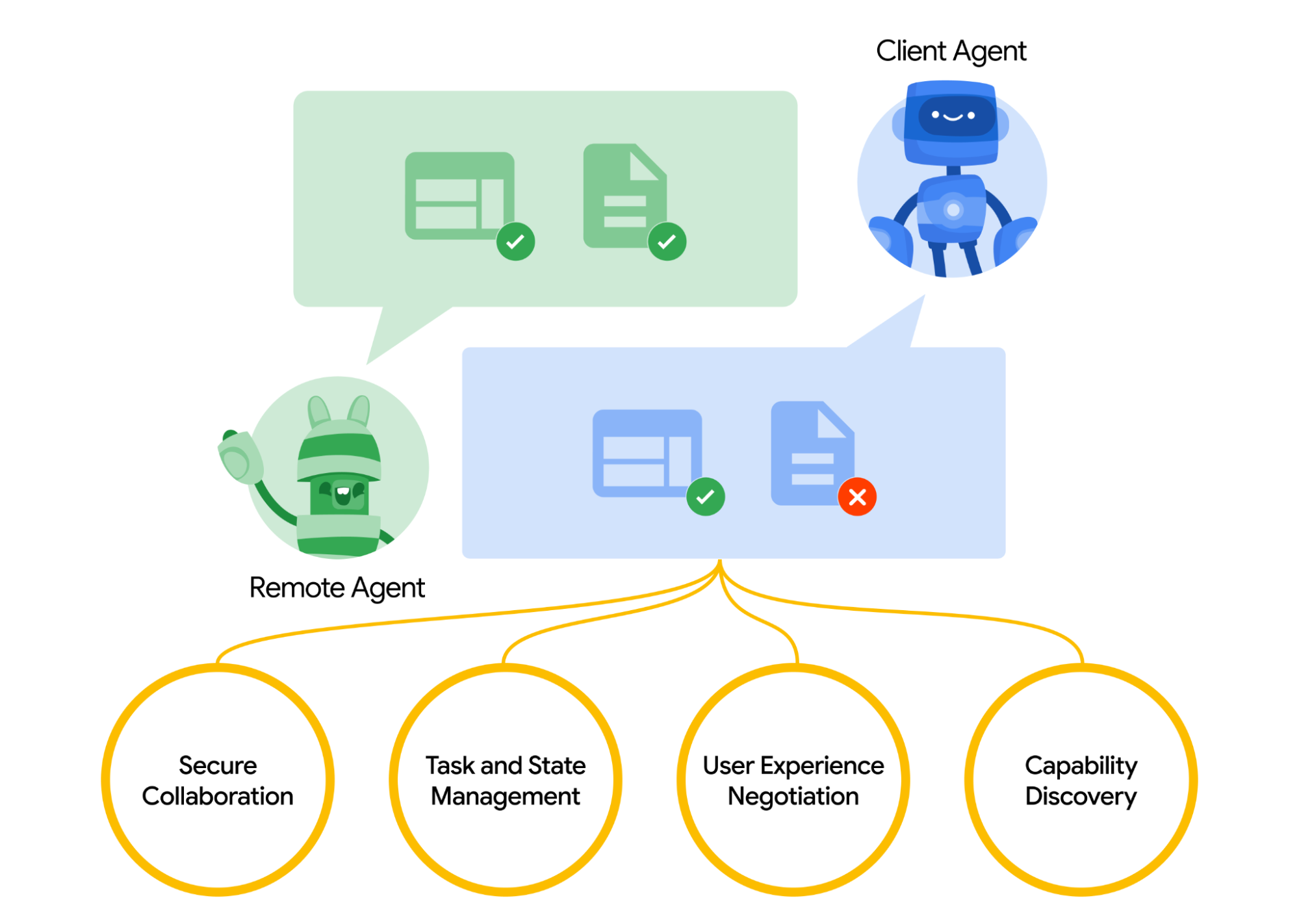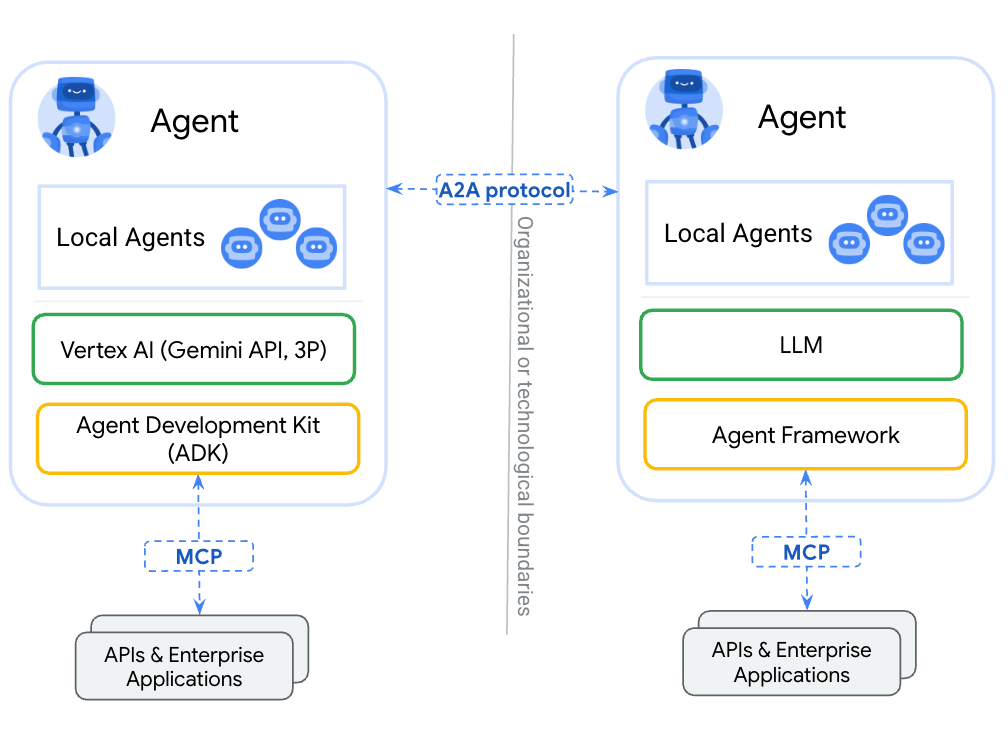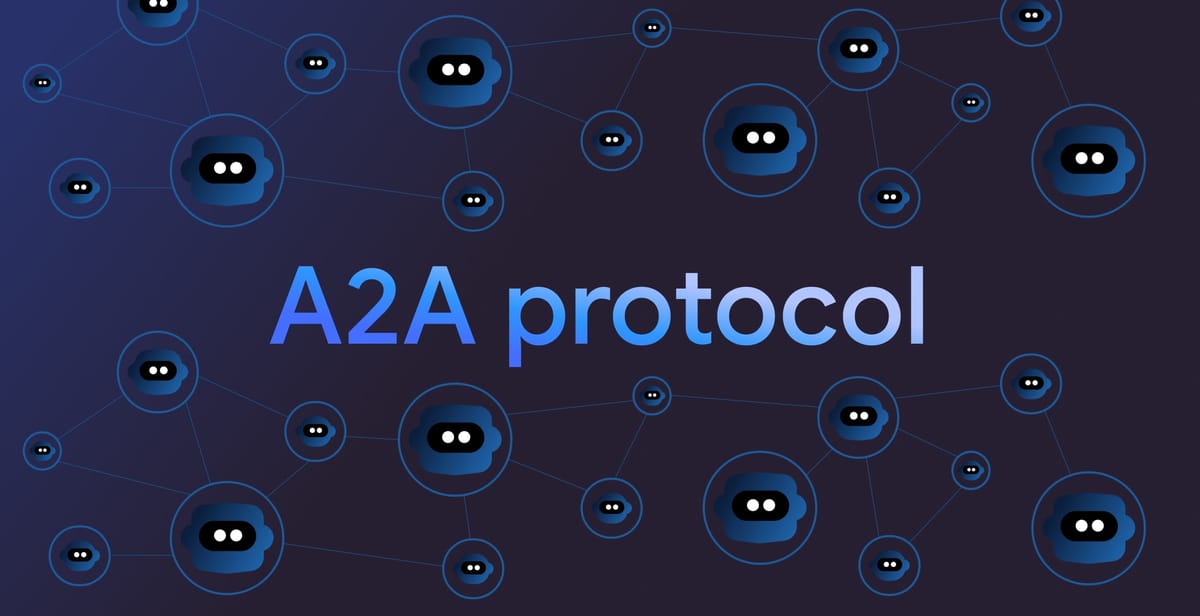Google is launching the Agent2Agent Protocol (A2A), a new open standard designed to let AI agents talk to each other—regardless of who built them, where they run, or what framework they’re on. If Model Context Protocol (MCP) gave agents a structured way to use tools, A2A gives them a way to collaborate with one another—turning isolated bots into teams of digital workers. It’s the clearest signal yet that the industry is beginning to standardize how autonomous AI systems should behave in the wild.
Key Points:
- A2A is an open protocol enabling secure, cross-platform communication between AI agents.
- Backed by 50+ major partners, including Atlassian, Salesforce, and Deloitte.
- Complements Model Context Protocol (MCP) by handling agent-to-agent collaboration.
- Designed for enterprise use with long-task support, real-time updates, and multimodal data.
Think of A2A like a lingua franca for agentic AI: it defines how agents advertise their capabilities, negotiate user experiences, exchange information, and coordinate to complete tasks—whether those tasks are as short as booking a meeting or as long as sourcing and vetting job candidates over several days. And critically, it’s designed for enterprise environments from day one. That means support for authentication, push notifications, streaming updates, and even long-running human-in-the-loop workflows.

A2A is launching with backing from over 50 major players across tech and consulting—including SAP, PayPal, MongoDB, ServiceNow, LangChain, and BCG—signaling a broad appetite for interoperable agent ecosystems. For businesses building with AI, the promise is massive: you won’t need to rely on a single vendor’s ecosystem or custom glue code to get agents working across HR systems, CRM platforms, or supply chain tools. Just like HTTP made the web work, A2A aims to make the agent web work.
Google positions A2A as a natural complement to Anthropic’s MCP, which handles structured tool use. Where MCP connects agents to APIs and data services, A2A is for agents interacting with each other. To use an analogy Google shared: if MCP is the socket wrench, A2A is the conversation between mechanics as they diagnose the problem.

A2A is also explicitly designed to support opaque agents—those that don’t expose their internal reasoning or memory—which is key for enterprise use cases where security, modularity, or vendor abstraction is required. Instead of syncing internal states, agents share context via well-defined “Tasks,” which include inputs, instructions, results (“Artifacts”), and live status updates. Messages and data flow using standard formats like HTTP, JSON-RPC, and SSE for streaming.
The initial spec is live and open source, with SDKs, example apps, and sample agents already available for popular frameworks like Google’s ADK, LangGraph, CrewAI, and Genkit. Google is actively inviting the community to contribute as it marches toward a 1.0 production-ready release later this year.
If A2A gains traction—and the early support suggests it might—it could accelerate the agent ecosystem the way Kubernetes standardized cloud-native apps or how OAuth streamlined secure access across platforms. By solving the interoperability problem at the protocol level, A2A lowers the barrier for businesses to mix-and-match agents from different providers and finally treat them as a coherent digital workforce.
The protocol is currently available as an open-source project on GitHub, with Google planning to launch a production-ready version later this year. For businesses looking to future-proof their AI investments, A2A deserves serious attention.

